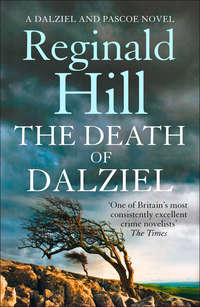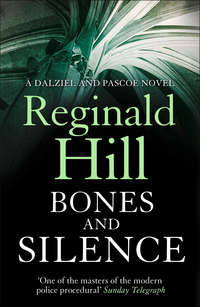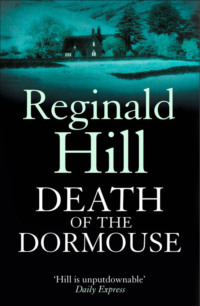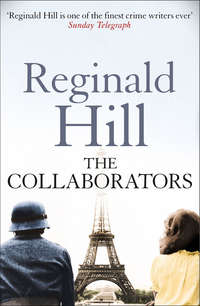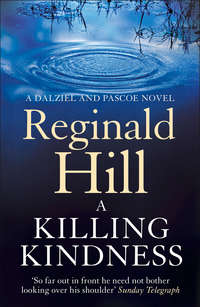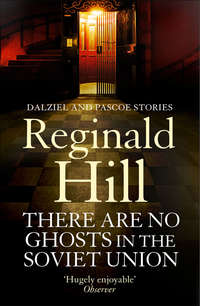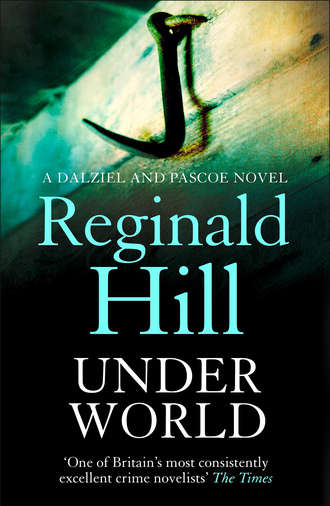
Полная версия
Under World
‘Most things are when you look at them straight,’ said Colin Farr. ‘This is us.’
His hand grasped her elbow lightly, its touch chivalric rather than erotic, and they stepped out in a unity of movement worthy of Astaire and Rogers.
Outside in the cool air of the shadowy side of the Ivory Tower, they paused.
‘I’m going over to the crèche,’ said Ellie.
‘The what?’
‘The nursery. Where staff can leave their children while they’re teaching. And students too.’
‘Very democratic. I’m off to the car park. Where staff can leave their cars. But not students.’
‘That’d be a male decision,’ said Ellie. ‘It’s a wonder the attendant doesn’t get you. He’s a terror. It took three phone calls to persuade him I was entitled first time I came.’
‘You should try a motorbike,’ said Farr. ‘You can be round the back of his hut before he notices.’
They stood in silence for a moment. Ellie glanced at her watch.
‘See you next week, then.’
‘Likely,’ said Farr. ‘If I can manage.’
‘Colin, I was sorry to hear about your bit of trouble.’
She did not care to hear herself using the euphemism, but she was treading carefully. No one had mentioned the young man’s week in jail today and she’d taken this as a signal that he didn’t want it mentioned.,
Now he gave her his crooked little near-smile and said, ‘It were nowt. I’ve been in worse places.’
‘The pit, you mean?’
‘Oh aye. That’s worse. But I meant worse jails.’
He grinned openly at her look of surprise.
‘I’ve not just been a miner,’ he said. ‘I’ve been a sailor too. Did you not know that?’
‘How could I?’ prevaricated Ellie. ‘I mean, you’re so young!’
‘Old enough. I went down pit at sixteen like all me mates. But I got a bit restless after a bit and when I was nineteen I jacked it in and went and joined the Merchant Navy. I were in for nearly four years. I came back to Burrthorpe just in time to go on strike for a year!’
‘And will you go back? To sea, I mean.’
‘Mebbe. I can’t say.’
There was another silence.
Ellie said, ‘I’ve really got to go and pick my daughter up. Till next week, then. Goodbye.’
‘Aye. See you.’
She walked away. He watched as she passed from the shadow of the Tower into the sunlight before disappearing into one of the two-storey red-brick buildings on the scattered and disorganized campus.
He checked the car park was clear before loping towards the gleaming Suzuki 1100 which cost him more than he ever dared tell his mother in monthly payments. But it was money he didn’t grudge. As he started her up, the attendant rushed from his hut shouting, ‘I want a word with you!’
Farr waited till he was about thirty feet away, then opened up the throttle and sent the bike leaping forward towards the man.
‘Jesus Christ!’ he cried, jumping aside.
‘See you next week!’ yelled Farr over his shoulder.
He wove his way at a steady pace through the city traffic but once out on the open road he rapidly took the powerful machine up to the speed limit and held it there for a while. Then as the exhilaration of the streaming air, the blurring hedges and the throbbing metal between his legs got to him, he gave it full power and was soon cracking the ton on the straights.
It couldn’t last long. Soon his eye registered the brief image of a police car sitting in a lay-by, waiting for just the likes of himself, and a couple of minutes later it was in his mirror, too distant to have got his number which in any case he always kept as muddy as he could get away with, but not receding. Ahead the road wound down a shallow hill to a small township which seemed to pride itself on having traffic lights every ten yards. Also there was a police station there, easily alerted by the car radio.
There were no turn-offs before he hit the town. He was travelling very fast downhill towards a sharp left-hand bend. Straight ahead was a tall hawthorn hedge with woodland behind it. There was a gap or at least a thinness in the hedge where it met a wall at the apex of the bend.
Instead of slowing for the turn, he twisted the throttle to full open. There might be something coming the other way; he might find the hedge more solid than it looked; even if he got through, the close clustering trees would be almost impossible to avoid.
He went straight across the road.
The hedge parted like a bead-curtain. He felt its branches scrabble vainly to get a hold on his leather jacket, then he was among the trees, bucketing over exposed roots, leaning this way and that as he twisted through the copse, decelerating madly. His shoulder grazed bark, a low bough almost took his helmet off. Finally he mounted the steep mossy bank of a drainage ditch, let the bike slide from between his legs and lay on the ground, his ragged breath drawing in the odour of leaf-mould and damp earth while his pounding heart settled back into the monotonous rhythms of safety.
Distantly he heard the police car go by. He sat up and removed his helmet. He was hot in his leathers and he took them off too. Almost without thought, he continued undressing, peeling off shirt and trousers till he stood naked among the trees feeling the cool air playing on his feverish flesh. He was sexually aroused. He thought of Stella Mycroft. And he thought of Ellie Pascoe. His hand moved to his groin, but a sudden gust of wind heavy with a chilling rain got there first.
Like a pail of cold water over a rutting dog, he told himself sardonically, Thanks, God!
He pulled on his clothes and protective gear, pulled the bike upright and set out across country easing the bike along ploughed furrows but opening it up across pasture land. Sheep scattered; cows regarded him with gentle curiosity. A man on a tractor stood up and waved an angry fist, mouthing inaudible abuse. Colin Farr waved back.
Ultimately he hit a farm lane which took him out on to a minor road he did not know. Using the declining sun, he turned to the south-west and soon was back on a main road he recognized.
When he reached the outskirts of Burrthorpe, he stopped at a telephone box, went in and dialled.
The number rang a while, then the phone at the other end was lifted and the pips demanded his money before he could be heard, like ghosts gibbering for blood. He pressed in his coin.
A woman’s voice said, ‘Hello? Burrthorpe 227.’
He didn’t speak.
‘Hello?’ Impatient now. ‘Who’s there?’
Still he kept silent.
And now the voice changed, the pitch lower, the tone anxious.
‘Colin, is that you?’
But still he did not reply and the woman cried out angrily, ‘Get stuffed!’ and banged the phone down.
Colin Farr left the receiver dangling and went home.
Chapter 7
Ex-Deputy Chief Constable Neville Watmough awoke on the Friday morning after the SDP candidate selection meeting with that dull ache of the heart which warns the mind of a disappointment before the mind itself has recollected it.
He had been rejected. Again. The local councillor had won the nomination after a period of debate so short that in a jury it must have meant one show of hands in the corridor outside the court-room. The bastard was a car salesman, for God’s sake, fit enough no doubt to sort out local problems of street-lighting and refuse-collection, but with little grasp of national or international affairs. As for his person – the suede boots, the two-tone shirt, the thin moustache which he kept on touching nervously while the anaemic tongue lubricated the narrow lips in preparation for yet another ingratiating smile – what kind of image was this for a Party with any real belief in its right to govern? Not that the selection committee itself had inspired any confidence. Schoolteachers, small businessmen, a solicitor’s clerk, a token manual worker, and in the chair, that fat female JP who never missed any opportunity of scolding the police like a stern aunt from the Bench. At least in court you didn’t have to look at her huge splayed legs.
Perhaps he had picked the wrong Party. Perhaps he should have listened to the frequent overtures from local Conservatives to become a bulwark of their Law and Order lobby.
But Watmough was not a stupid man any more than he was immoral or opportunist, and over breakfast he settled down to sorting things out into their true relations in the chain of causality.
‘It looks as if it could be nice enough to finish tidying up the garden today, dear,’ said his wife brightly.
He smiled and grunted and sipped his coffee. It might have been pleasant to discuss things with her, but after three decades of conditioning to regard her husband’s professional affairs as unapproachable, it would be as difficult for her to listen as for him to speak. Fleetingly he wondered if he had been altogether wise to treat, say, Mid-Yorkshire’s traffic flow problems as confidential within the bounds of the Official Secrets Act. But he had made that decision and now must live with its loneliness.
At least, he told himself with some complacency, he did not blame his wife. She had accompanied him dutifully the previous night and said all the right things on cue. He guessed that he alone had detected her mighty relief when the chance that they might have had to move to London had been trampled on by those suede boots.
No, the cause of his disappointment had been bad timing. He had come too late into the race. Or rather, he had come too early. And the cause of that was his failure to get the Chief’s job. Now that had been a real shock. No waking up the next morning then to the dull ache of disappointment, for he had been kept awake all night by its searing pain. It had shattered his hopes and scattered his plans, and worst of all, it had clouded his judgement. It had seemed a cleverly contemptuous act to chuck in his own resignation so quickly afterwards. He would have been wiser far, he now realized, to hang on and look around for a Chief’s job in another part of the country. The local man, because he was known and taken for granted, was always at a disadvantage in such matters – except in the case of car salesmen, it seemed. No, he should have withdrawn, regrouped …
A clock chimed. Ding dong ding dong. Ding dong ding dong. Dong ding ding dong. Ding dong ding dong.
The sound filled him with sudden fury. He counted himself back to control with the hours … seven, eight, nine.
‘I find those chimes a little irritating,’ he said mildly.
‘Do you dear? I’m sure they can be turned off. Most things can.’
Was this irony? he asked himself in amazement. A glance across the table reassured him and he let his mind count another link back in the chain of causality.
The support of his colleagues, their simple loyalty, that too had been missing. That cunning old bastard Winter, the outgoing Chief, had never liked him. God knows what he’d said to the Committee. And as above, so below. That gross grotesque, Dalziel …
He shuddered at the memory.
At least he was now free of them, free to make his own decisions. Free to set the record straight.
There was his book, a serious review of the problems and future of modern policing, based on his own experience and observation, and leavened with accounts of some of the more famous cases he’d been involved with. It was a long way from being finished, of course, but he’d shown an outline and some draft sections to Ike Ogilby.
What was it Ike had said as he returned them?
‘Very interesting, Nev. Should rouse a lot of interest in the so-called quality papers and heavy chat shows. But a lot of it would be above our readers’ heads. It’s not as if you’re claiming you get your ideas from God or anything really wild like that, is it?’
‘I didn’t show you the drafts with a view to Challenger publication, Ike,’ he’d replied, genuinely surprised.
‘Of course not. But I was thinking, Nev, in the remote circumstance things don’t go right for you politically, this time. I mean – you could do worse than keep yourself in the public eye with a series of pieces in the Challenger …’
‘But you said that your readers …’
‘No, I wasn’t meaning the main meat of your book, Nev. You wouldn’t want to show your hand too early there, would you? I’m afraid the country’s too full of unscrupulous senior cops who aren’t above nicking a good idea. No, I was thinking of the more popular market. Memoirs of famous cases. Telling it like it was. We wouldn’t need to take up all that much of your creative time either. I took the liberty of showing your draft to Monty Boyle, our chief crime man. He was most impressed. Monty could work with you. He’d do the leg work and stitch it all together. You’d have copy approval, of course, but this way it wouldn’t interfere with your serious writing.’
‘Interesting idea,’ he’d replied. ‘But hardly the thing for a parliamentary candidate.’
‘Perish the thought,’ said Ogilby. ‘But have lunch with Monty anyway. Never any harm in having lunch, is there?’
So he’d had lunch, and found the journalist a civilized and entertaining companion. The man had asked if he’d mind if he ran his cassette recorder as they talked. ‘It’s best to keep a record, especially when it’s informal. Things get missed. Or misunderstood. This keeps us both straight.’
‘No, I don’t mind,’ said Watmough. ‘Though it seems a waste of your batteries as I really don’t envisage writing anything other than campaign speeches in the near future.’
‘No, of course not. But as a crime reporter, I’m always keen to pick the brain of an expert.’
They had spent a fascinating hour talking about famous cases, then, as they parted, the journalist had said, ‘By the way, I know it’s unlikely to happen, but if Ike ever does sign you up, don’t settle for less than …’ and he had named a quite surprising sum.
Since then, Ogilby hadn’t referred to the matter. Would he bring it up again when news of last night’s débâcle reached him? It wasn’t that Watmough needed the money – there were any amount of run-of-the-mill security adviser jobs he could have if his excellent pension and good investments needed topping up – but he did need to make sure he maintained his public profile in preparation for the next selection short list.
If Ogilby didn’t contact him it shouldn’t be too difficult to contrive an accidental meeting. But he mustn’t appear to be pressing …
In the hall, the telephone rang. He rose and went to answer it.
‘Neville? It’s Ike.’
He glanced at his watch and smiled. Ten past nine. These newsmen didn’t let the grass grow under their feet when they really wanted something! Now what was that figure that Monty Boyle had said he should go for?
It was good to feel back in control again.
‘Hello, Ike,’ he said. ‘And what can I do for you?’
Chapter 8
Peter Pascoe was getting used to going to work on Tuesdays in a bad temper. And an opinion pollster catching him en route would also have detected a marked swing to the right, at least as far as mining communities were concerned.
This morning at breakfast, Ellie had announced that she was planning to go down a mine. ‘An experience shared is a gap bridged,’ she declared. Pascoe, dismayed by the idea for a pudder of reasons, none of which he could identify reasonably, wondered whether this meant he was likely to find himself going to bed with a miner. Ellie informed him coldly that while reason was occasionally democratic, ridicule was always élitist. This, coming from a woman who fell off her chair at the ranting of radical comedians, had to be challenged. One thing led to another and the other led to the usual, which was Pascoe sitting at his desk in a bad temper on Tuesday morning.
After an hour of tedious paperwork, he had declined from a boil to a simmer when his door burst open with a violence worthy of the Holy Ghost fresh from Philippi jail. It was, however, no paraclete who entered.
‘He’s done it!’ exclaimed Dalziel. ‘I knew it’d happen. Reason said no, but me piles told me different.’
‘Who’s done what, sir?’ asked Pascoe, rising to place himself defensively between the fat man and his records cupboard which Dalziel had taken to rifling at will during the past few days.
‘It’s Wonder Woman’s memoirs. The Challenger’s going to publish them!’
‘Good Lord. I heard he didn’t get the nomination …’
‘He’d as much chance of being nominated as an aniseed ball on a snooker table,’ snarled Dalziel. ‘We all knew that. But Ogilby was going around saying he’d read some of the memoirs in draft and it were like eating cold sago with a rusty spoon, so no one reckoned the Challenger could really be interested. But it was funny, the more folk said it were impossible, the more my piles ached.’
Pascoe was singularly uninterested in Dalziel’s haruspical haemorrhoids but he found himself marvelling as often before at the extent of his personal intelligence service. If it happened in Mid-Yorkshire, he knew it in hours; anywhere else in the county and he might have to wait till the next day.
‘But if it’s as bad as that, why should Ogilby be interested?’
‘Christ knows! But he must reckon there’s enough dirt in there to be worth digging for! They can make silk knickers out of a pig’s knackers, them bastards! That Leeds vicar last week. Caught two youngsters nicking candlesticks and by the time Monty Boyle were finished, he had Headingley sounding like a mix of Salem and Sodom!’
‘Monty Boyle!’ exclaimed Pascoe. ‘Of course!’
‘You know something I don’t?’ said Dalziel incredulously.
Pascoe explained.
‘It fits, doesn’t it? The Pickford case was Watmough’s finest hour. And it was during South’s investigation of that Burrthorpe girl’s disappearance that it all came to a head and Pickford topped himself, leaving a note confessing all. So if Boyle was sniffing around so that he could collaborate with Watmough on a tell-all series, he’d not want to draw rival attention to it by getting involved in a court case. Only, this was before the selection meeting, so Ogilby must have been pretty sure what the result would be.’
‘I told you, everyone was. And if he hadn’t been, he would likely have fixed it.’
‘I’d better give Alex Wishart a buzz and warn him what’s happening,’ said Pascoe.
‘Let Wishart take care of himself,’ said Dalziel. ‘You concentrate on looking after those nearest and dearest. Like me.’
‘But Watmough was mainly admin after he came back to us,’ pointed out Pascoe. ‘Not even the Challenger can make his time here interesting.’
‘I wish I could be as sure, lad,’ said Dalziel. ‘But forewarned is forearmed …’
‘That’s why you’ve been ruining my records!’ exclaimed Pascoe.
‘They were a bit mixed up,’ said Dalziel reprovingly. ‘You want to watch that. Well, mebbe you’ll turn out to be right and it’ll all be a storm in a piss-pot after all. But one thing I know for sure. If Lobby Lud says anything out of place about me, I’ll hit him so hard with his clock, his head’ll chime for a fortnight!’
He left like a mighty rushing wind.
Behind him Pascoe sat down and mused a little space. There were tiny clouds no bigger than a man’s hand on several of his horizons. They might of course come to nothing or even break in blessings on his head. But when Dalziel got nervous, his colleagues did well to twitch.
And when Ellie started talking about going down mines, it was perhaps time to start looking beneath the surface himself.
First, though, he owed Alex Wishart a phone call.
The Scot listened in silence, then said, ‘Well, I don’t see how he can harm us by anything he says. He would hardly want to, would he? It was his triumph and you don’t rain on your own parade. You’re worried in case he takes a little side-swipe at Fat Andy, is that it? Mind you, from what I’ve heard, he’s got it coming to him. Watmough’s no genius, but he always struck me as a decent kind of man and an efficient enough cop.’
‘Dalziel took against him. I think Watmough dropped him in the mire way back when they were both sprogs.’
‘Doesn’t just look like an elephant, eh? Well, I wasn’t on the Pickford case myself, but perhaps I’ll have a wee glance through the records just in case. Thanks for tipping me the wink, Peter. I’ll be in touch.’
He kept his word quicker than Pascoe expected. Early the same afternoon the phone rang.
‘Peter, I’ve been looking at the Pickford files. You’ve probably worked out yourself that your own involvement is only through the Tweddle child.’
Annie Tweddle, aged seven, had been found strangled and assaulted in a shallow grave in a wood about ten miles from the Mid-Yorks village in which she lived. There were no leads, and the case had been shelved for eighteen months when Mary Brook, eight, had been abducted from a park in Wakefield in South Yorkshire and later found buried on the Pennine moors. She too had been strangled after being sexually assaulted. A few months later, little Joan Miles of Barnsley had gone missing and the worst was feared. But now there was a common factor. Among the reams of statements taken in both cases there were references to a blue car, probably a Cortina, being seen in the vicinity. All similar cases over the past few years were reactivated. South, under Watmough, began to go through the computer print-outs of all registered owners of blue Cortinas in the area.
Then Tracey Pedley, the Burrthorpe child, had vanished too. Once more a blue car figured in the witness statements. And a week later a blue Cortina was found in a country lane near Doncaster with a length of washing-machine hose running from the exhaust into the rear window.
Inside was the body of Donald Pickford and a long incoherent letter in which he confessed by name to several killings and by implication to several more. Clinching evidence that this was not just some compulsive confessor driven by his madness to the ultimate authentication came in a set of detailed directions which led to the grave of Joan Miles in a marshy nature reserve only a mile away. Annie Tweddle was mentioned by name. Tracey Pedley wasn’t. But once it was established that Pickford was likely to have been in the area at the time she vanished, she was put down with a few others as a probable victim.
‘We did have to establish Pickford’s alibi, or rather the lack of it, in the Pedley case, I think.’
‘Yes, but that was hardly important,’ said Wishart reprovingly. ‘I was just trying to sort out where, if anywhere, you might be vulnerable to a bit of criticism.’
‘I suppose Watmough could make a few snide remarks about us having got nowhere with the Tweddle investigation,’ said Pascoe dubiously. ‘But in fairness to the man, he never made any such cracks when he was here, and God knows, he was provoked enough!’
‘So, no need to lose any beauty sleep, eh? Or ugly sleep in Andy’s case. Before you ring off, Peter, there was one other thing. Insignificant, I’m sure, but it might interest you. I gave my old mate, Sergeant Swift, a ring. He was at Burrthorpe all through the Pedley case and through the Strike too, so what he doesn’t know about the place isn’t worth knowing. It was Swift who had the doubtful pleasure of arresting that lad, Farr, you were asking about. Now, when I told him about the Challenger printing Mr Watmough’s memoirs, he told me that our friend Monty Boyle hadn’t been put off by his encounter with that window. He’d been back a couple of times, buying drinks and asking questions, though he’s given a wide berth to the Farr boy!’
‘Asking questions about the Pedley girl, you mean? Well, that figures. Incidentally, was there any special reason why he should have approached Farr or was it pure accident?’
‘He claimed it was just an accident at the time, but now Swift knows what he’s up to, he reckons different.’
‘But Farr can’t know anything about the girl’s disappearance or the Pickford case,’ said Pascoe. ‘You said he was away at sea till the Christmas before the Strike and the Pickford business blew up that September, didn’t it?’


